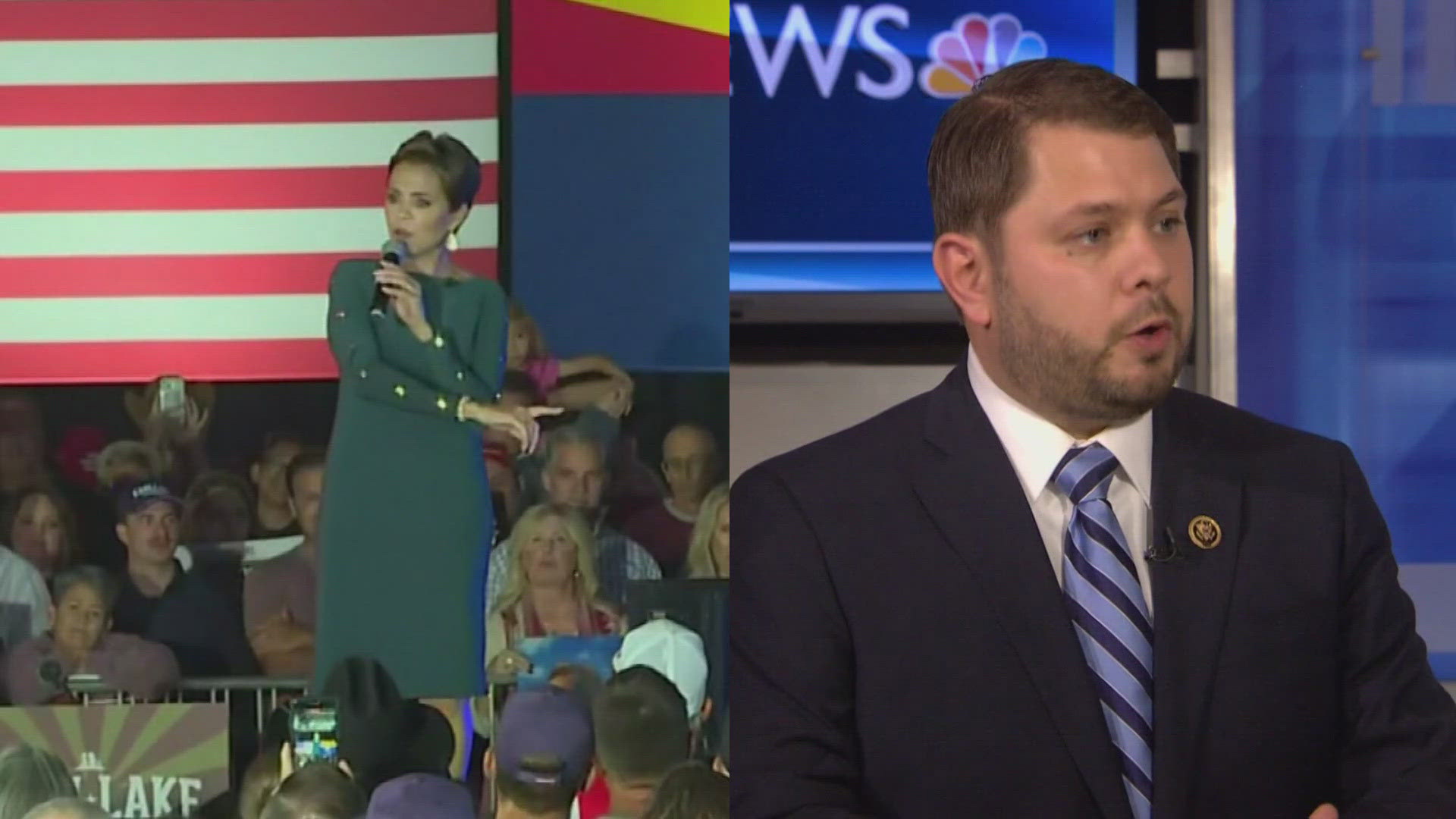PHOENIX — Nearly $30,000 in rideshares. More than $26,000 on a campaign event at former President Donald Trump’s Mar-a-Lago resort. Almost $160 for a babysitter.
Between consultants, transportation, office space and advertising — campaigns can be expensive machines to run.
If you donated money to Ruben Gallego or Kari Lake’s Senate campaign, you may wonder how your dollars are being spent. The latest filings to the Federal Election Commission show just that.
Ruben Gallego (D)
Total raised: $20.8 million
Total spent: $12.4 million
Cash on hand: $9.6 million
As of March 31, Ruben Gallego’s campaign spent $3.8 million on advertisements, both television and radio. Fundraising expenses totaled $2.9 million.
Gallego’s campaign has also spent more than $27,000 on rideshares and $158 to hire a babysitter during campaign speeches, according to FEC filings. More than $700,000 was spent on payroll and $648,000 on processing fees charged primarily by ActBlue, a political action committee which raises money for Democratic politicians and charges a flat rate of 3.95% on each donation.
“You can raise a lot of money but you also spend a lot of money,” said DJ Quinlan, a Democratic campaign strategist. “Senate operations are very large campaigns these days and there is a lot of logistics involved.”
Gallego spending by category:
1. Advertising: $3,850,940
2. Fundraising: $2,881,858
3. Mail and postage: $1,414,266
4. Consulting: $1,202,499
5. Payroll: $703,218
6. Processing fees: $647,593
7. Research: $303,005
8. Transportation: $144,542
9. Accounting: $108,561
10. Lodging: $59,808
Kari Lake (R)
Total raised: $5.7 million
Total spent: $3.2 million
Cash on hand: $2.5 million with $452k in debts and loans
Kari Lake’s campaign reported spending $109,000 on mostly digital ads and $1.4 million on mail and postage.
“I assume it is a lot of fundraising expenses,” Quinlan said.
Lake’s campaign spent $26,000 on venue rental and catering at former President Donald Trump’s Mar-a-Lago resort in Florida. The campaign also paid out $1 million to consultants, including $302,000 to TAG, a Virginia-based firm founded by Jon Adams, who managed digital analytics for Mitt Romney’s presidential campaign and was also part of John McCain’s 2008 presidential team.
Lake’s campaign also paid $48,000 to Winning Team Publishing, which published her book “Unafraid: Just Getting Started.”
Lake spending by category:
1. Mail and postage: $1,062,241
2. Consulting: $1,044,213
3. Campaign events and fundraisers: $237,312
4. Digital advertising: $109,426
5. Processing fees: $105,429
6. Travel: $101,386
7. Books: $47,939
8. Mailing list rentals: $43,742
9.Polling: $42,500
10. Campaign merchandise: $36,506
Mark Lamb (R)
Total Raised: $1.6 million
Total Spent: $1.3 million
Cash on hand: $253,000 with $117,000 in debts and loans
Lamb spending by category:
1. Consulting: $498,781
2. Mail and postage: $254,029
3. Mailing list rentals: $192,603
4. Digital fundraising: $97,746
5. Earmark fees: $52,232
6. Media production: $38,845
7. Telemarketing: $31,478
8. Campaign attire: $27,935
9. Digital Ads: $21,000
10. Airfare: $9,945
Certain expenditures are off-limits for campaign funds.
According to the FEC, if an expense would exist regardless of the candidacy, the personal use ban applies. This means candidates cannot use campaign donations to pay their mortgage, food or utilities for their personal residence even if part of the home is being used by the campaign.
When it comes to clothing, candidates cannot use donations to buy a new tuxedo or dress but can use the money to purchase T-shirts or hats imprinted with a campaign slogan.
The FEC even has a section to address funeral, cremation and burial expenses:
“Campaign funds cannot be used to cover expenses related to deaths within the candidate’s family. They may, however, be used to cover funeral, cremation and burial expenses for a candidate or campaign worker whose death arises out of, or in the course of, campaign activity.”
Win or lose, candidates often have leftover campaign funds after an election.
According to the FEC, candidates must decide whether they plan to run again, convert their campaign committee into a political action committee, or close up shop. In this case, surplus funds are subject to the same rules — candidates can give to other political action committees, donate funds to charity, or spend remaining cash on “any lawful purpose,” according to the FEC.
UP TO SPEED

